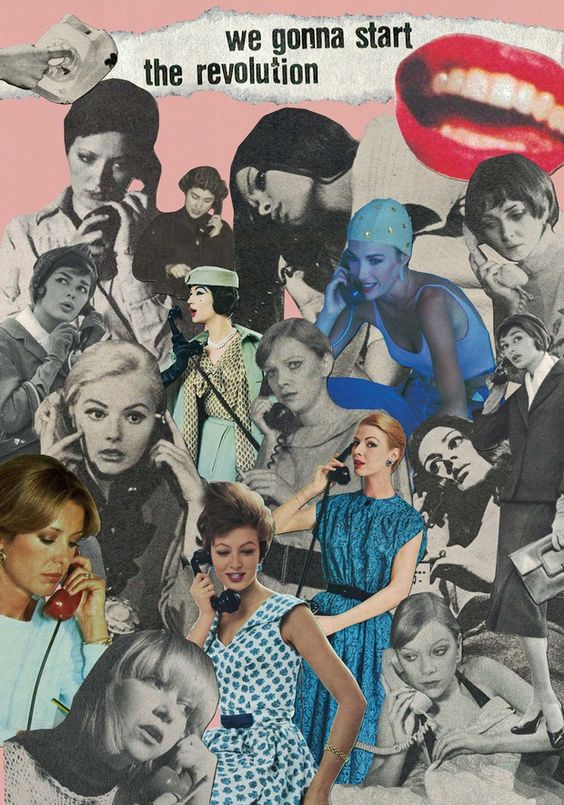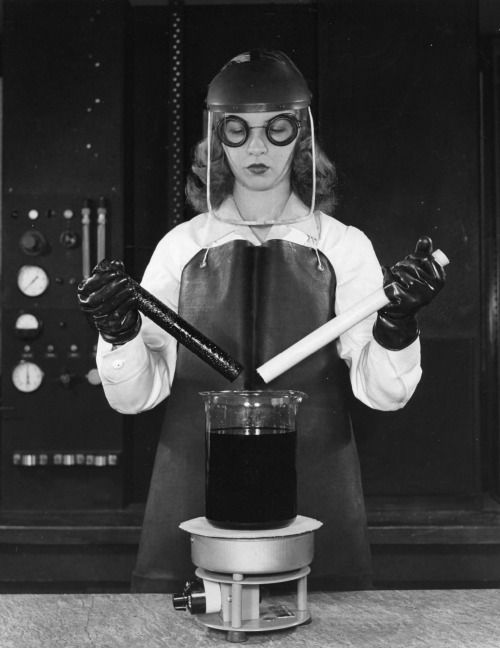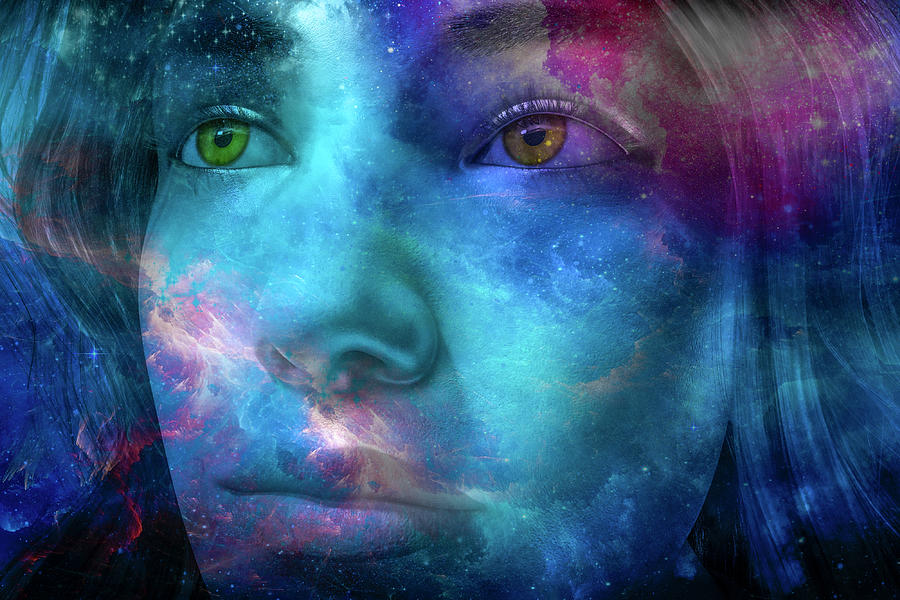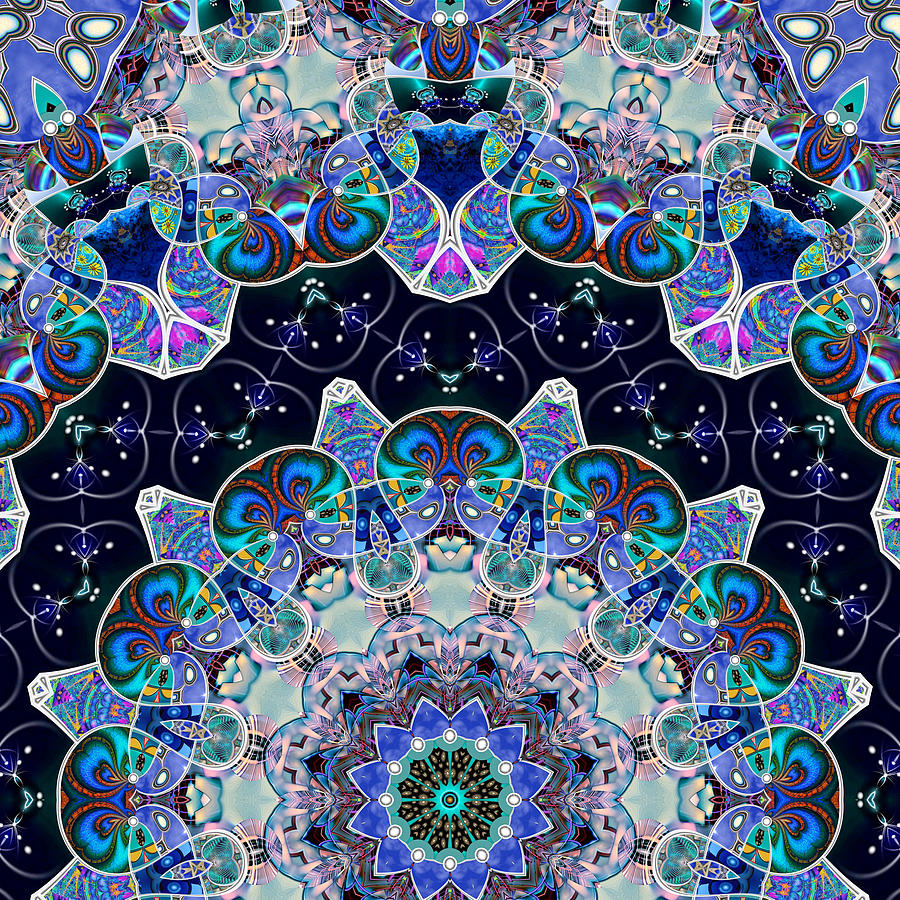 The transit of Uranus through Aquarius speaks to the maverick in all of us. It’s the equivalent of the universe having a midlife crisis, but instead of buying a sports car, it opts to dismantle societal hierarchies and redefine community. During this time, the old traditions and find themselves quivering under the weight of Uranus’s electric charge. Aquarius, the water-bearer, is no stranger to radical ideas and futuristic visions. When Uranus, the planet of innovation, rebellion, and awakening, sashays into Aquarius’s domain, the stage is set for a wild reinvention of what it means to live together as a society. Expect upheavals that feel both chaotic and strangely exhilarating. The social fabric starts to go through unexpected changes, and we’re challenged to let go of rigid constructs that no longer serve and instead move towards the wacky, the wonderful, and the wildly progressive.
The transit of Uranus through Aquarius speaks to the maverick in all of us. It’s the equivalent of the universe having a midlife crisis, but instead of buying a sports car, it opts to dismantle societal hierarchies and redefine community. During this time, the old traditions and find themselves quivering under the weight of Uranus’s electric charge. Aquarius, the water-bearer, is no stranger to radical ideas and futuristic visions. When Uranus, the planet of innovation, rebellion, and awakening, sashays into Aquarius’s domain, the stage is set for a wild reinvention of what it means to live together as a society. Expect upheavals that feel both chaotic and strangely exhilarating. The social fabric starts to go through unexpected changes, and we’re challenged to let go of rigid constructs that no longer serve and instead move towards the wacky, the wonderful, and the wildly progressive.
This transit demands answers. How can technology serve the collective good without shackling us to its cold, digital grip? Can we forge connections that are deeper and more meaningful, even as the world becomes more interconnected yet strangely isolated? It’s a time of disruption, but it’s also fertile ground for creativity. The innovators, misfits, and dreamers find themselves at the forefront, dragging society—sometimes kicking and screaming—into new paradigms. Everyone is handed a “Be Bold or Be Left Behind” pamphlet, printed on recycled paper, naturally.
Progress often looks like chaos at first, but out of that a new order emerges—one that’s fresher, freer, and filled with the promise of a better tomorrow.
Together
Together, Uranus and Aquarius are the zodiac’s dynamic duo for progress, marching arm in arm toward a world that’s freer, fairer, and brimming with possibility. Uranus is no stranger to disruption; it loves nothing more than flipping over the Monopoly board of life and suggesting we turn the game into an art project instead. Pair that with Aquarius, the idealistic thinker who dreams of a utopia where everyone gets a seat at the table, and you have a recipe for a revolutionary shift in how society operates.
This transit calls for a dismantling of the invisible walls we’ve built around ourselves—those biases, hierarchies, and prejudices that limit not only others but also ourselves. It says: We are all in this together! Diversity isn’t a buzzword; it’s the engine of progress, the palette for innovation, and the soul of humanity’s collective journey. Expect the spotlight to shine on issues of equality, inclusivity, and social justice. The old structures that thrive on exclusivity and division? They’ll start to crumble. This is the time to imagine a world where the uniqueness of every individual is not just tolerated but celebrated.
Technology and intellectual pursuits will also flourish under this transit. Aquarian energy combined with Uranian innovation pushes for advancements that benefit the collective rather than the privileged few. Think clean energy solutions, groundbreaking humanitarian efforts, and maybe even a way to heal the world. But let’s not forget: transformation can be uncomfortable. Breaking free from rigid systems and long-held beliefs often comes with resistance. That’s okay—it’s part of the process. Uranus in Aquarius reminds us that discomfort is a small price to pay for liberation. It’s time to speak up for what’s right, dream big for the future, and build bridges where others would erect walls. This is a time to imagine a better world, and if it gets a bit messy along the way, just remember: revolution is rarely tidy, but it’s always worth it.
Large Scale Experimentation
Uranus in Aquarius is astrological shorthand for “Let’s try this wild idea and see what happens!” The term “large-scale social experimentation” captures this transit’s essence perfectly. It’s a time when the collective spirit yearns to stretch, question, and innovate. Governance may shift from rigid hierarchies toward more collaborative, grassroots approaches. Technology could become a tool for liberation or, if wielded unwisely, an unwelcome overlord. Communities might feel both empowered by newfound connections and disoriented by the pace of change. It’s like society’s trying on new outfits, unsure which one suits it best.
During this period, people are invited—nay, provoked—to question how things are done. Governments might toy with unconventional forms of leadership or reimagine democracy to reflect the diverse voices of their citizens. Companies may dive into cutting-edge technologies, introducing platforms and systems that feel as though they’ve stepped straight out of science fiction.
This era also leads to experimental communication and collaboration. Social movements, built on shared ideals, may rise seemingly overnight, powered by digital networks. Individuals might find themselves part of communities that transcend geography, uniting through shared passions, ideologies, or even memes. It’s as if we’re collectively discovering the thrill (and pitfalls) of working together in bold, uncharted ways. Of course, no grand experiment comes without its hiccups. The rush to innovate can sometimes lead to unanticipated consequences—think privacy concerns with technology, social divides caused by rapid change, or the occasional ill-conceived idea that leaves everyone scratching their heads. (Remember Google Glass? Yeah, like that.)
Uranus in Aquarius is less about immediate perfection and more about the willingness to try. Failure isn’t failure; it’s just feedback. Each bold step forward, whether it soars or stumbles, contributes to the evolution of society. Challenges are simply the necessary friction that sparks ingenuity. The universe isn’t asking us to get it all right—it’s asking us to dream, to dare, and to keep going, even when things don’t go as planned. After all, progress isn’t a straight line; it’s a zig-zag.
A Jailbreak
Transiting Uranus moving through Aquarius is a jailbreak where humanity is gently—or not-so-gently—urged to rethink its fences. This is a moment for stepping over the line, and perhaps erasing it altogether, redrawing the map of what’s possible and permissible. The breaching of boundaries during this transit speaks to an unraveling of the tightly bound structures that have kept us compartmentalized. Cultural norms may feel the pressure to evolve under the weight of new perspectives and progressive ideals.
The rigidity of belief systems, once thought unshakable, finds itself tested as new ideas seep in through cracks we hadn’t noticed before. Suddenly, the cry of “We’ve always done it this way” starts to look more like an outdated relic than an enduring truth. Geographically, life begins to border on connection. Technology, ever the eager handmaiden of Uranus, steps in to ensure that ideas and information flow with great speed. Whether it’s through advancements in communication, the rise of global movements, or the breaking down of language barriers, this is a time when the phrase “the world is your oyster” might actually feel real.
Let’s not overlook the technological barriers being obliterated. The energy of Uranus in Aquarius is like a tech-savvy teenager hacking into systems not for chaos, but to prove they could be better. The promise of this transit is a more open, interconnected world where innovation isn’t a buzzword; it’s the scaffolding for a brighter future.
Of course, breaching boundaries can be both liberating and chaotic. For some, this openness feels like a breath of fresh air; for others, it’s a whirlwind. The dismantling of tradition can spark resistance, as the comfort of “the way things were” gives way to the unknown. But we have to find the courage to step into uncertainty, knowing that progress is often birthed from the discomfort of change.
The invitation here is clear: be open. Open to new ways of thinking, living, and connecting. Let curiosity replace fear and empathy replace judgment. As walls fall and borders shake, the universe dares us to believe in a world where unity isn’t a pipe dream but a shared reality. The breaches you see around you aren’t destruction—they’re doorways. After all, when boundaries are crossed with intention and love, what lies beyond is nothing short of extraordinary.
A Look into the Past
The Hale Bopp Comet
In 1997 a showstopper in the heavens seemed to declare, “Pay attention, something extraordinary is unfolding!” The conjunction of Jupiter and Uranus in Aquarius, paired with the comet Hale-Bopp, created an astrological something resonated with both wonder and gravity. It left humanity wide-eyed and contemplative. Jupiter, the great amplifier, teaming up with Uranus, the planet of upheaval and innovation, is no small affair. Together, they ignite a spark of transformative brilliance, magnifying Uranus’s rebellious energy while channeling it toward expansion and growth. In Aquarius—a sign devoted to progress, technology, and humanitarian ideals—the energy shifts from personal disruption to collective awakening. The global stage becomes the playground for revolutionary ideas, and 1997 becomes a time for breakthroughs that ripple far into the future. Enter Hale-Bopp, a messenger blazing through the night sky. This comet was a potent symbol of the rare and monumental. The sheer size of its nucleus, rivaling the comet that may have ended the reign of the dinosaurs, offers a visceral reminder of the immense forces at play. But unlike that ancient harbinger of destruction, Hale-Bopp came not to end but to herald—to illuminate a period of change and enduring innovation.
The comet’s trajectory, not to return for over two millennia, underscores the rarity and significance of this moment. This is a time when the seeds of change—technological advancements, shifts in governance, and new ways of thinking—are sown deeply, destined to flourish and redefine the centuries to come. The year 1997, then, serves as a bookmark, a point of no return. The innovations birthed under this astrological alignment—think the internet’s meteoric rise, breakthroughs in science, and a global shift toward interconnectedness—are harbingers of a new era. Aquarius’s influence ensures that these changes prioritize humanity’s collective evolution, blending technology with a renewed sense of community and purpose.
Heaven’s Cult Mass Suicide

The tragic story of the Heaven’s Gate cult is a sobering and strange chapter in the late 1990s. It sits like a shadow amid the brilliance of comet Hale-Bopp and the potent energy of Uranus and Neptune’s transits. Here, we see the double-edged nature of transformation: the potential for spiritual awakening, boundless connection, and progress, but also the danger of disillusionment and misplaced faith.
The members of the ‘Heavens Cult Mass Suicide’ believed that the Hale-Bopp comet carried a message urging them to abandon their earthly bodies and join a spaceship following the comet. Authorities reported that three hundred and nine members of the cult committed suicide by consuming a lethal mixture of vodka and barbiturates. During the continued influence of the Uranus-Neptune transit (with Neptune at a critical degree), the phenomenon of ‘mass spiritual enlightenment’ and disillusionment significantly impacted society during that period.
During this time, transiting Uranus in Aquarius was championing futuristic visions and the dismantling of outdated societal constructs, while Neptune—dreamy, illusory, and spiritual—hovered at a critical degree, amplifying collective yearnings for transcendence. Together, they created an atmosphere ripe for radical ideas, spiritual quests, and utopian dreams. But where Uranus inspires breakthroughs, Neptune can blur the lines, leading some to confuse fantasy with truth. It’s in this foggy overlap that the Heaven’s Gate tragedy unfolded.
The cult’s fixation on the Hale-Bopp comet as a chariot to salvation reflects this transit’s impact on the collective psyche. With the internet—a burgeoning force of interconnectedness—playing a role in the cult’s spread of beliefs, we see a microcosm of Uranus in Aquarius’s larger theme: the transformative power of technology and its capacity to shape both unity and delusion. While the World Wide Web began fostering global brotherhood and shared visions, it also proved fertile ground for isolated ideologies and distorted spiritual beliefs.
The themes of social tolerance and interconnectedness were also prominent during this period. The internet, still in its nascent stages, enabled communities to form across borders, creating a sense of global citizenship. However, this same interconnectedness magnified tensions around social intolerance and political movements, as people began to feel the push-pull between old hierarchies and emerging collective ideals. The stars seemed to usher of unity, but humanity struggled with the process of integration.
Meanwhile, an increased fascination with outer space and global concepts wasn’t limited to science and technology—it extended to the cultural imagination. From space exploration to apocalyptic prophecies, people were looking beyond Earth for answers, as if the vast cosmos held a mirror to our collective longing for meaning. Uranus and Neptune invite us to dream, to reach for the stars, but we also have to keep our feet on solid ground. Transformation requires vision, but it also needs discernment—a clear-eyed ability to separate the authentic from the illusory.
Deadly Cocktails and Space Adventure
Uranus and Neptune teamed up to write an event that sounds more like the plot of a dystopian sci-fi novel than reality. When you see mass suicide, fatal cocktails, spacecraft, and a comet mentioned together, you can almost hear these planets in the wings. Uranus, ever the revolutionary, brings shockwaves of innovation, rebellion, and sudden change. It doesn’t knock politely on the door of tradition; it kicks it down, asking us to reconsider everything we thought we knew. Neptune, meanwhile, is the dreamer, the mystic, and sometimes the deceiver. It blurs boundaries, dissolves reality, and invites us to lose ourselves in fantasies of a higher purpose—or in the fog of delusion.
When these two forces collide, as they did in the late 1990s, the result is a heady mix of visionary potential and dangerous escapism. Uranus plants the seeds of radical ideas, while Neptune waters them with otherworldly dreams and spiritual yearnings. Under this influence, the extraordinary becomes plausible, and the improbable suddenly feels within reach. The tragic story of Heaven’s Gate, with its comet-chasing spacecraft, feels almost like an archetypal expression of this planetary aspect. The cult members, caught in the thrall of Neptune’s promise of transcendence and Uranus’s push toward radical new paradigms, got sucked into a distorted vision of escape from earthly confines. Hale-Bopp, a literal space traveler, became a symbol of their spiritual longing, but also a mirror of the disconnection that can occur when these energies are left unchecked.
On a broader scale, the Uranus-Neptune of this era reflected society’s collective wrestling with the same themes. The internet—a Uranian innovation—was exploding into our lives, offering unparalleled connectivity but also the Neptune-fueled potential for misinformation and illusion. Social movements, fueled by hope for progress, were simultaneously grounded in ideals of universal brotherhood and haunted by the shadow side of idealism—dogma, intolerance, and disillusionment.
Uranus in Aquarius Natally: Gen Z
The Greatest Generation and Generation Z are two cohorts separated by decades, yet bound by purpose and influence. Their stories, though lived in different epochs, resonate with themes of transformation, and an unwavering commitment to a better world. Both, in their unique ways, have been called upon to illuminate the landscape of human existence, to confront crises, and to foster a sense of collective growth.
For the Greatest Generation, born between 1912 and 1920, life was full of challenges and staggering achievements. They came of age in the shadow of the Great Depression, where scarcity was a teacher and hardship a constant companion. From these formative experiences, they learned the value of grit, resourcefulness, and the power of community. Then came World War II, a global conflagration that demanded not only sacrifice on an unimaginable scale but also a reaffirmation of shared humanity.
This generation’s response was nothing short of heroic. They rebuilt a fractured world, laying the foundation for peace and prosperity in the post-war era. Their legacy is one of perseverance and a deep moral compass—a determination to ensure that the horrors of war and economic despair would not define the future. Their actions were about building a vision of hope and renewal for the generations that followed.
Enter Generation Z, born into a world profoundly shaped by the digital revolution, climate challenges, and an accelerating pace of social and cultural change. Like their predecessors, they have been thrust into an era demanding resolve. While the Greatest Generation wielded shovels to rebuild cities and lives, Generation Z wields smartphones and social media, catalyzing global movements and breaking down barriers of communication and understanding.
Their shared commitment to improving the world is striking. For the Greatest Generation, it was about rebuilding from the ashes and creating institutions that upheld stability and fairness. For Generation Z, it’s about challenging those same institutions to adapt, evolve, and address systemic inequalities and environmental crises. Both generations, in their own ways, exemplify the courage to confront entrenched problems and envision a brighter future.
Where the Greatest Generation fought for physical survival and the preservation of democratic ideals, Generation Z fights for the planet’s survival and the inclusion of every voice in shaping tomorrow. Their tools are different, but their mission is the same: to leave the world better than they found it.
Kindred Spirits
Generation Z finds itself in a world both more connected and more fractured than ever before. Raised amidst smartphones and the glow of screens, they’ve had access to a near-limitless archive of human experience. This digital immersion has made them hyper-aware of humanity’s triumphs and failings, as if the entire realm of human behavior has been laid bare before their eyes.
Their acute awareness is of global challenges—climate change, social inequality, and political unrest. This connection fuels their desire for action. Where previous generations might have accepted the status quo, Gen Z questions it relentlessly: Why must things be this way? How can they be different? And yet, their drive mirrors that of the Greatest Generation, whose context was shaped by stark lessons in human behavior. Having faced the devastation of economic collapse and the threat of global war, the Greatest Generation bore witness to humanity at its worst—and at its best. They understood, deeply and personally, the consequences of division, intolerance, and apathy.
The Great Upheavals
Transiting Uranus in Aquarius during the era of the Great War and the Russian Revolution is an alignment that feels almost too poetic to be coincidence. Uranus, the harbinger of revolution and upheaval, stepping into its own sign of Aquarius, the bearer of innovation and humanitarian ideals, speaks to a moment when the wheels of history groaned and turned, breaking free from old grooves and carving out new trajectories.
The Great War (World War I) and the Russian Revolution were nothing short of seismic events in the human story, each upending entrenched norms and reshaping the global landscape. These were reckonings with the nature of power, identity, and societal organization. Astrologically, Uranus embodies the spirit of rebellion, progress, and visionary thinking. Its energy doesn’t ask politely for change—it demands it. In Aquarius, this demand is amplified, aimed squarely at societal structures and collective ideologies. The transit of Uranus into Aquarius during this period involved toppling monarchies, challenging imperialist powers, and redefining the very fabric of human society.
In the Great War, we see the catastrophic culmination of old-world power structures, with empires clashing in a struggle that left millions dead and reshaped national borders. The war exposed the fragility and moral bankruptcy of these systems, paving the way for a new order. Uranus in Aquarius showed us that the old ways were no longer sustainable. Similarly, the Russian Revolution epitomized Uranus’s energy: a dramatic, sometimes violent upheaval aimed at dismantling an archaic hierarchy and replacing it with a new vision for society. While the ideals of the revolution—equality, brotherhood, and collective progress—aligned with Aquarian values, the execution revealed the complexities and contradictions of such transformative shifts.
This era also highlights the enduring tension between individual freedom and collective unity, themes central to both Uranus and Aquarius. The revolutionary fervor of the time sought to balance these principles: the inherent rights and dignity of individuals versus the needs and aspirations of the collective. The Great War fractured societies, forcing individuals to confront the limits of nationalism and the cost of blind allegiance. The Russian Revolution, meanwhile, raised questions about the price of collective progress when it comes at the expense of personal freedom.
The events of this period reveal the cyclical nature of change. Revolution, whether personal or societal, is rarely a clean break—it’s fraught with contradictions, and often comes with unintended consequences. Yet, it is also necessary. Uranus in Aquarius teaches that progress requires courage, vision, and a willingness to confront the old in pursuit of the new.
A Catalyst for Awakening
The Great War and the Russian Revolution, two titanic events, epitomize humanity’s capacity for both devastating conflict and transformative change. World War I, with its trench warfare and mechanized brutality. It stripped away the romantic veneer of battle, exposing the industrial-scale carnage of modern conflict. Soldiers became statistics, “cannon fodder” in the pursuit of territorial gains and political prestige. The sheer scale of human suffering laid bare the hollowness of the systems that had led to such devastation, forcing a reckoning with the value of human life.
This reckoning, though born of despair, was profoundly Uranian in nature. It ignited a collective demand for accountability and progress. The war’s aftermath saw the birth of international organizations like the League of Nations—a precursor to the United Nations—designed to mediate disputes and prevent future catastrophes. Treaties and agreements began to codify the notion that human rights were not luxuries but necessities, even if their enforcement remained imperfect. This shift wasn’t just political; it was deeply spiritual and philosophical. The war forced societies to confront their complicity in systems that dehumanized and exploited. It sowed seeds of a growing awareness that progress must center on the dignity and rights of the individual—a theme that would echo throughout the 20th century.
The Russian Revolution: The Uranian/Aquarian Archetype
If the Great War was a shattering of illusions, the Russian Revolution was a phoenix rising from the ashes—albeit one with its own complexities. The overthrow of the Tsarist regime was quintessential Uranus in Aquarius: sudden, revolutionary, and aimed at dismantling oppressive hierarchies. It was fueled by the ideals of equality, brotherhood, and shared prosperity—values deeply aligned with Aquarian energy.
Initially, the revolution appeared to promise a new dawn. The proletariat, long crushed under the heel of aristocracy, rose to claim their voice. The ideals of collectivism and shared wealth offered a vision of a society built not on exploitation but on cooperation. It was, in many ways, a revolutionary dream made manifest. But dreams, as we know, can curdle into nightmares. Over time, the revolutionary fervor gave way to consolidation of power. The idealism of the early Bolsheviks was eclipsed by authoritarianism, censorship, and repression under leaders like Stalin. The very structures that had been torn down to liberate the masses were replaced by new systems of control, illustrating a timeless truth: revolutions often eat their own ideals.
The Cyclical Nature of Revolution
This cyclical pattern—of transformation followed by stagnation—is one of the great paradoxes of progress. Uranian energy disrupts and innovates, but without the balance of grounded, Saturnian boundaries, it risks creating chaos. Similarly, Aquarian ideals of brotherhood and equality can become hollow if not tempered with vigilance against the corruption of power. The Russian Revolution exemplifies this tension. It was a triumph of collective action, yet it also revealed the danger of revolutionary leaders becoming the very oppressors they sought to overthrow. The disillusionment that followed underscores the need for continuous reform and renewal, lest the new establishment calcify into the old regime.
It’s a Uranian revolution, and not the kind that ends neatly with a bow. History, with all its sprawling chaos and cyclical upheavals, doesn’t really end—it transforms, shifts, and reinvents itself. Revolutions don’t stop—they ripple forward, carried by the courage of those willing to challenge the status quo. The revolution isn’t a moment—it’s a mindset, a commitment to keep questioning, rebuilding, and evolving. So, to anyone who finds themselves facing their own personal chapter of Uranian upheaval: take heart. The human spirit is strong, its ingenuity boundless.












